Before My Latest Portland Trip, I Decide To Sell ReadWriteWeb
Prior to my October 2011 trip to the US for Web 2.0 Summit (it would be the last ever Web 2.0 conference), I decide to put RWW up for sale. Then during my visit to Portland before SF, Marshall resigns.

An opportunity arose to discuss a possible sale of ReadWriteWeb when Sean got back from a trip out west at the end of August, during which he’d visited the FM Publishing office in San Francisco. I asked him how it went, and he replied that he’d had a positive discussion with FM about several ad campaigns. “The only sticky thing is that our traffic really is tough and we need it to start growing,” he added.
The following day, September 2, I sent Sean the August statistics via Google Analytics. It made for grim reading: our total page views had dropped 11 percent month over month, to 4.34 million. It was our worst month in well over a year. Obviously, this had been impacted by losing two of our highest page-view generators that year (Sarah and Klint), but I also had to admit to Sean that “both Marshall and I are struggling on the writing front.” I said that I was feeling burned out and that I thought there was a big danger Marshall would quit, given his continued unhappiness with losing the coeditor role. I then made my rather weak pitch to him.
“I really hate to even suggest this, but I think we should at least consider it: should we start to look for an acquirer now? Obviously it’s not good timing, but right now we still have a very strong brand, great audience demographics and lots of potential.” I argued that the business would operate significantly better if it had a stable US entity behind it—particularly for the writing staff, but also our ops team. It would finally enable RWW to offer benefits to staff and have a corporate structure in place that would make our people feel more comfortable.
I said that the page views were struggling because we’d lost a bunch of senior and skilled writers, and we’d basically had to start over again with junior writers. But I thought we had a strong case for saying that the brand is still rock solid and we just needed a better corporate structure behind it to get page views going up again.
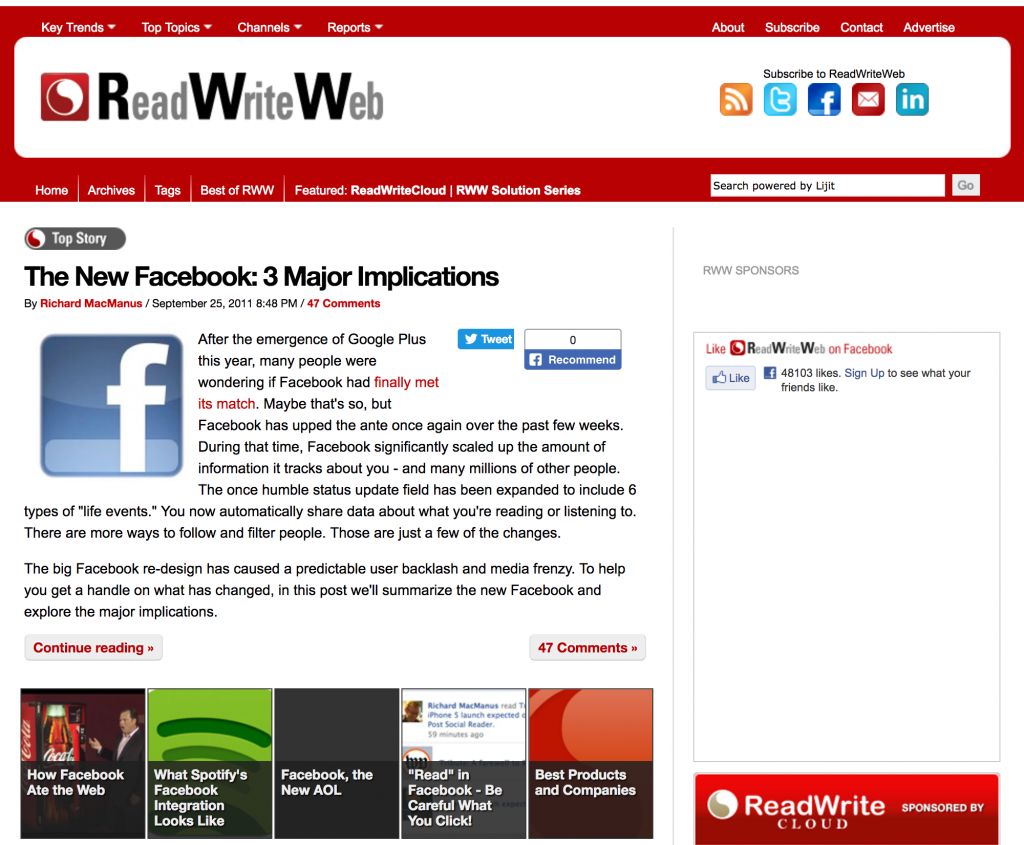
Sean was measured in his response. He said he could talk to four or five potential acquirers, but this wasn’t an optimal time to sell. The site’s shaky performance in this financial year would result in a business value well below what it would have been worth the previous December. “More importantly,” he added, “if things turn around it will be worth much more then it is today. Obviously, conversely, if things don’t, the sooner we sell this the better.”
In my reply, I recognized that this year couldn’t have gone worse from a growth point of view—which wasn’t a good thing when trying to sell a company. But I explained that I was primarily worried about the structure of the company because there was no obvious fix given the tax and legal issues around hiring people.
“I still feel like there is a lot of untapped potential in RWW,” I said. “The brand is still unique and I know there is demand for the type of passionate, thoughtful web analysis that we do. Nobody else does that type of analysis well, plus is hip to new social media stuff, etc. But the staffing issues this past year have really hurt us; and I’m most concerned that we haven’t plugged that hole. Marshall and to a lesser extent David [Strom] could walk at any moment. But also someone like Dan, who we’re building up slowly but surely—what’s to stop him from jumping to Techcrunch when he’s matured and become popular. We’ve developed a history of growing writers and then not being able to keep them (Frederic was an early warning, in hindsight).” I reiterated that I still believed in RWW’s brand and our audience. “But I think if we got a good offer, I’d probably take it at this point,” I said.
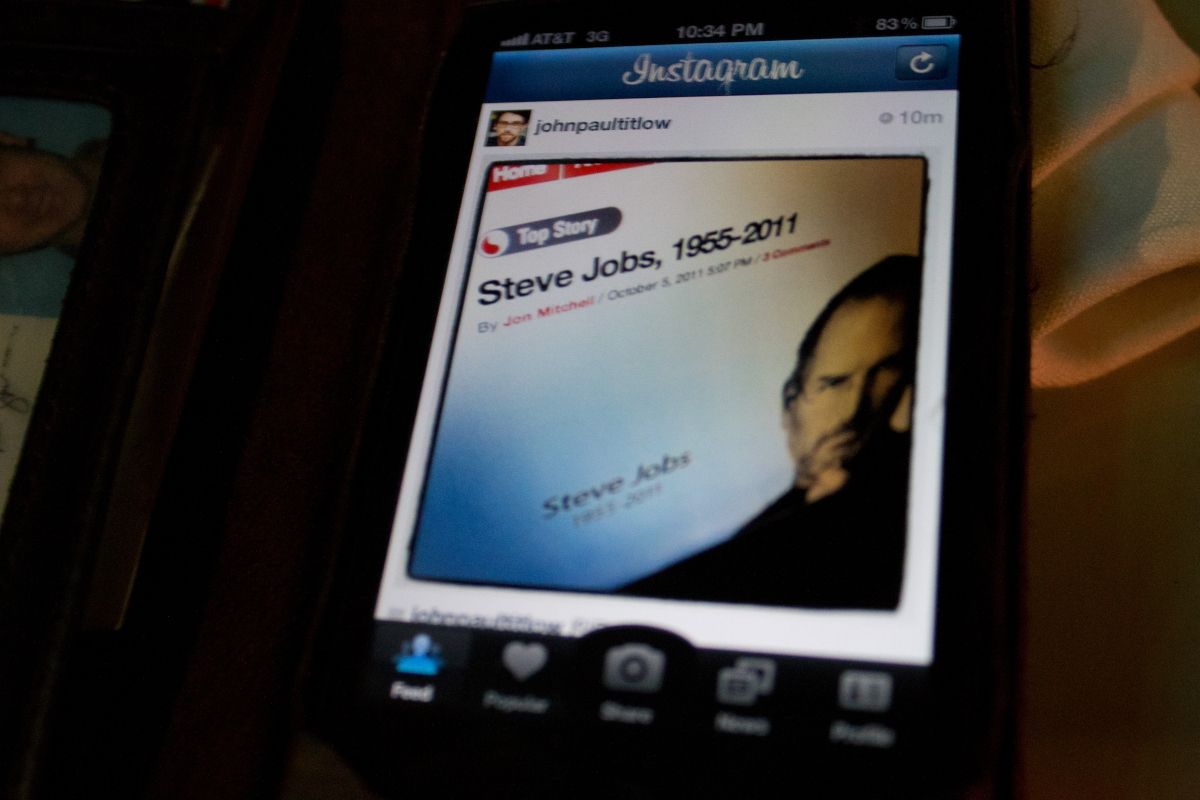
I told Sean I had already booked tickets to San Francisco in mid-October for the Web 2.0 Summit; I’d also be visiting Portland on this trip. He replied he would set up some initial conversations with potential acquirers during September so we could have more serious talks with interested parties in October if it came to that.
Of course, I had no idea if any company would even want to discuss an acquisition with us at this time. But I felt positive that I’d at least decided to explore this. It was better than sitting and waiting for the next writer to walk.
Portland Trip, October 2011
I arrived in California on Tuesday, October 11, after my usual twelve-hour flight from New Zealand. From SFO I took an Alaska Airlines flight to Portland, during which I spotted the musician Nick Lowe sitting in an aisle seat opposite me, but one row ahead. With his distinctive silver hair and big black glasses, he appeared to be absorbed in a crossword puzzle. But every so often he’d lean back, close his eyes, and mumble to himself. I wondered if he was creating a new song, since his lyrics were known for their clever wordplay. Perhaps he found inspiration in doing crossword puzzles.
I’d discovered Lowe’s music over the past few years and was particularly enamored of an NPR recording that had just been released of his live solo show as the opening act for Wilco. I admired that Lowe had reinvented himself after the age of forty, from a rock musician into a solo balladeer. He was now in his early sixties, so his second career had lasted longer than his first one. In a way, I wanted to emulate that—in my journals I wrote about leaving my group blog behind and starting a new career as an independent author. I didn’t know what types of books I wanted to write, but I would figure that out later. First, of course, I had to sell RWW.
By the time I got to Portland, we had six companies on our shortlist of potential acquirers: TechWeb, ZDE, O’Reilly Media, GigaOm, Federated Media, and SAY Media. We’d also had a conversation with Alan Meckler’s WebMediaBrands, but he was already out. Sean would be traveling out to San Francisco to join me for meetings with several of these companies.
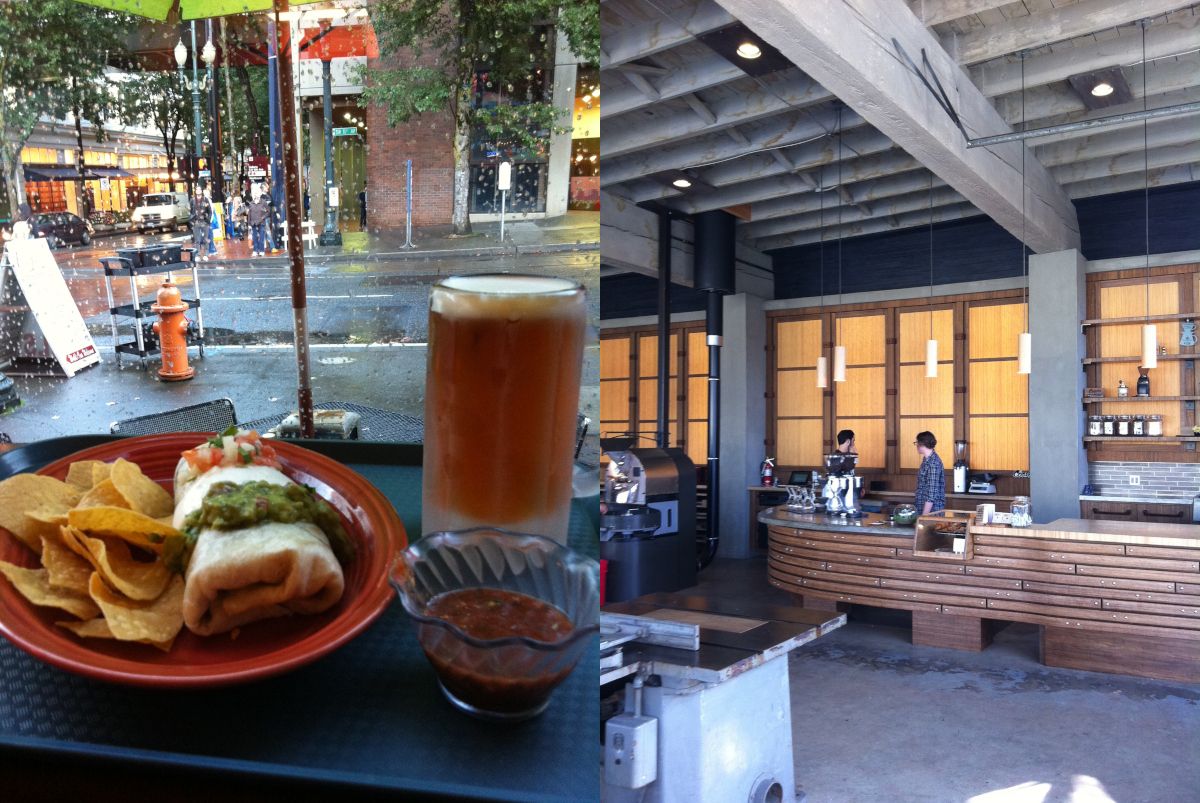
Prior to my trip to Portland, I’d tried to arrange a meetup with Marshall and Abraham for Wednesday, but I hadn’t heard back from Marshall before I left. He hadn’t replied to a few of my emails recently and had been less responsive than usual over the past month or so. In the back of my mind, I was worried that he was about to leave. Then, while I was in the air, Marshall sent an email requesting that we meet up on Wednesday morning, just the two of us. It gave me a bad feeling.
We met up at a Peet’s café in downtown Portland on Wednesday, around 10:30 a.m. It was Marshall’s birthday, his thirty-fifth, so I started by wishing him a happy birthday. We talked for a little about life—he asked after my daughter, I asked how his wife, Mikalina, was doing. I sensed he had something he wanted to tell me; his face was harder than usual, though he was being his usual polite self. I already knew what he was going to say, so it wasn’t a shock when he told me he was going to resign from his position as VP of content development at RWW. He was going to start up his own business, he said, adding that it wasn’t going to be a tech blog. He said he’d continue to write for RWW if I wanted him to.
Of course, I asked him to reconsider, noting that we were in the middle of trying to sell the business, so he’d lose some of his stock options if he resigned now. But he was adamant he wanted to leave now. I saw the determination on his face—there would be no changing his mind. I agreed that he would stay on as a regular writer; we couldn’t afford not to have his blog contributions at this time.
I discovered over the coming weeks that Marshall’s business idea was an application called Plexus Engine—and it was further along than I had initially thought. The website had been live since at least February of that year, so clearly this had been months in the planning before he handed in his resignation. By the time Marshall announced it to the world, about a month after our meeting, it was in a private beta and was being described as “an app and data platform that discovers emerging topical information.” The following year, he raised money from Mark Cuban and others.
After my coffee with Marshall, I IM’d Sean about the news. Understandably, he wasn’t happy—he’d just come out of a meeting with FM Publishing about a contentious ad campaign, so he told me this was the most frustrating day he’d ever had in business. I didn’t know what to say to that, other than to internally reflect on what a terrible year this had turned into for RWW. How had it all gone so wrong? But I had a lunch meeting with Abraham that day, so I didn’t have time to dwell on it.
That meeting cheered me up. Abraham had already shown over the past several months that he was an effective managing editor, and he’d recently taken the initiative to hire another new young writer, Alicia Eler, from Chicago. She had started with us at the end of September, and we were already impressed by her enthusiasm and writing. So we now had a promising cadre of young bloggers for our main site—John Paul, Dan, Jon, and Alicia. Poignantly, all had written excellent articles in memory of Steve Jobs, who had passed away at age fifty-six just a week before.
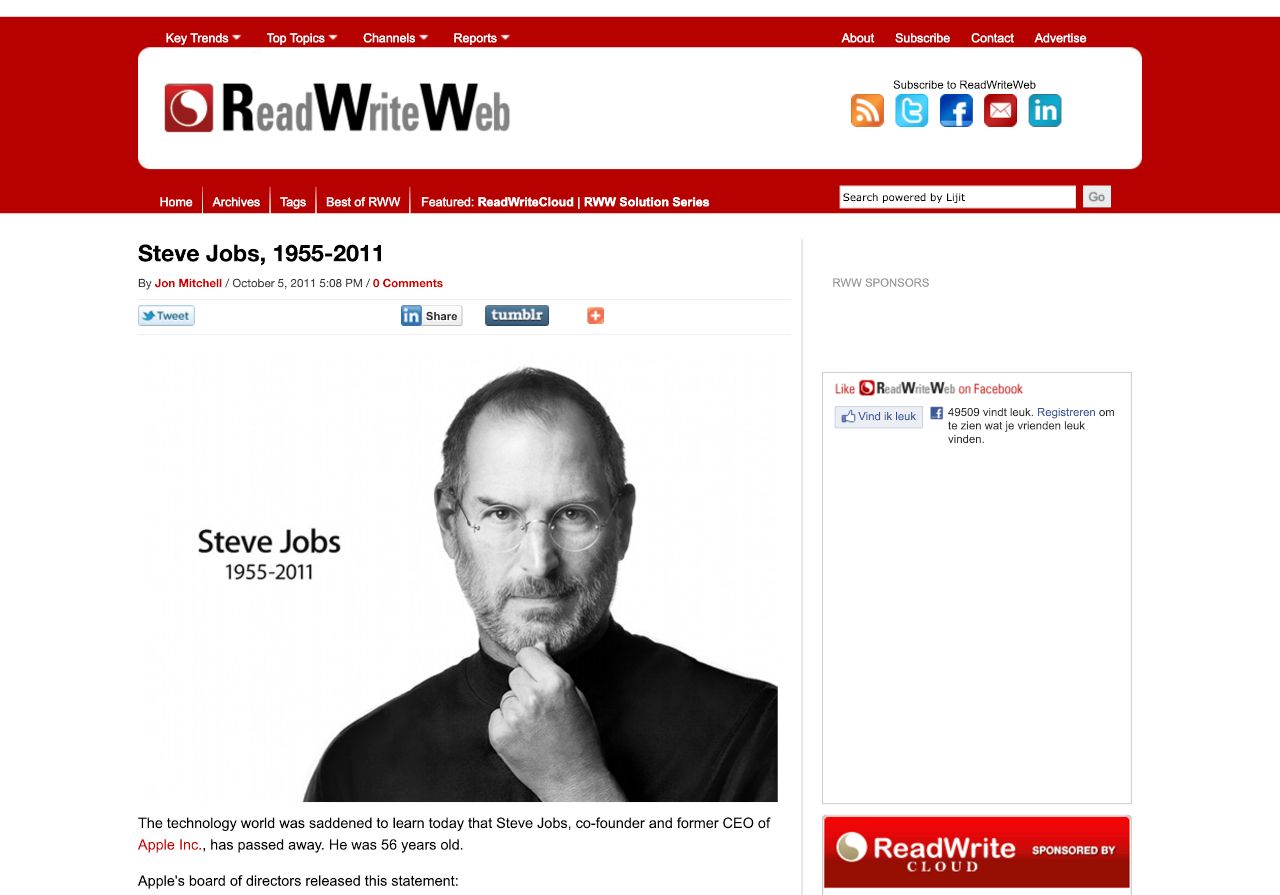
It wasn’t just the young writers who gave me hope. We’d also shored up our enterprise channels in recent months with two experienced IT reporters, Joe Brockmeier and Scott Fulton, who were well managed by David Strom. We had Robyn, Curt, Jared, and others in the wider team, all performing well, so there was reason to be optimistic. Indeed, our statistics for September had jumped 14 percent to a shade under five million page views. Despite all the staffing setbacks, we still had a strong team at core.
However, the universe wasn’t quite finished taking things away from RWW. On Thursday, our syndication partnership with the New York Times ended. We’d known about this for a month, when a Times executive emailed us to say they were ending the agreement—not just with RWW, but with GigaOm and VentureBeat too. “This is in no way a reflection on the quality of the content,” we’d been told. They simply wanted to do everything in-house now. Frankly, I was amazed the Times had continued publishing external tech blogs on their growing online platform for so long. We never got paid a dime for it, and the traffic the Times sent us was minimal, so it wouldn’t have a material impact on our business. But I was a little bummed that I would no longer be able to gloat to family and friends that we were published daily on the New York Times.
On Thursday evening we held a RWW meetup at the Green Dragon pub for the Portland tech community, which our community manager, Robyn, had organized. Marshall and I were able to have a friendly conversation—I didn’t have any hard feelings toward him, and both of us were more relaxed by this point (no doubt helped by the beer). It was a relief not to have my defenses up talking to him, and I’m sure he felt a similar way. I wished him all the best in his new startup venture and told him I appreciated him staying on in the interim as our lead writer. He said he’d always have a soft spot for RWW and the four years he’d spent working with the team.
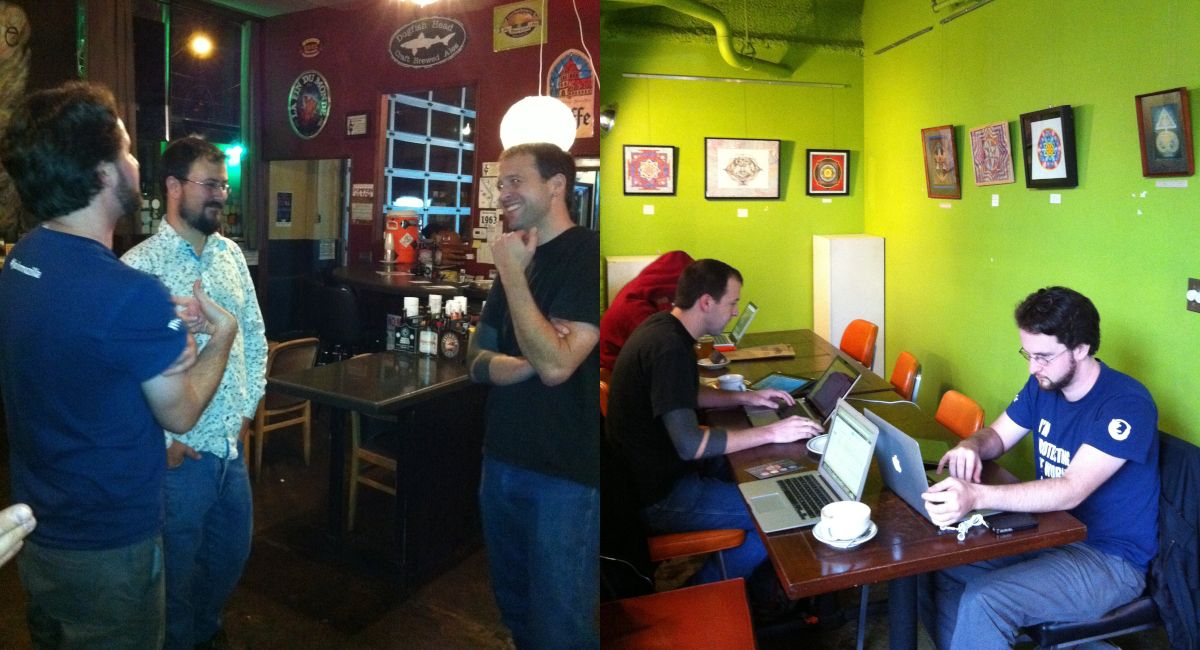
On Saturday morning I got on an Alaska Airlines plane back to San Francisco. I’d picked up a cold while in Portland, so I wasn’t feeling 100 percent. But I knew I’d have to perk up before the business meetings Sean had organized for next week. I had no idea what to expect from these meetings, but at least I’d ridden in this M&A rodeo before. While it hadn’t worked out with ZDE or TechWeb back in 2008, I was older and wiser now (well, certainly older).
I would also be attending the Web 2.0 Summit the next week. Had I known it would be the final Web 2.0 Summit or Expo, I might’ve summoned more enthusiasm. There had been no announcement to that effect yet, so as far as I knew, we were still in the midst of Web 2.0.
In hindsight, perhaps we were all burned out with the constant striving for growth. Whether any of us knew it or not, the end of an era was fast approaching.
This post is part of my serialized book, Bubble Blog: From Outsider to Insider in Silicon Valley's Web 2.0 Revolution. View table of contents.
Next up: 063. The Last Web 2.0 Conference and RWW Acquisition Talks 2.0
Buy the Book
My Web 2.0 memoir, Bubble Blog: From Outsider to Insider in Silicon Valley's Web 2.0 Revolution, is now available to purchase:
- Paperback, US$19.99: Amazon; Bookshop.org
- eBook, US$9.99: Amazon Kindle Store; Apple Books; Google Play
Or search for "Bubble Blog MacManus" on your local online bookstore.